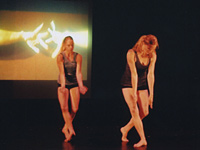|
 |
|
 |
| |
| |
| |
| |
| |
| |
| |
Campus: Kensington Campus
| |
| |
Career: Undergraduate
| |
| |
Units of Credit: 6
| |
| |
| |
| |
Indicative Contact Hours per Week: 3
| |
| |
Equivalent: THFI1002
| |
| |
| |
| |
| |
 |
|
 |
Description
Introduces different ways of analysing performance and performance bodies. Focuses on cultural performance, hybridity, authenticity, carnival, liminality, ritual, possession-trance, fieldwork and ethnography, cultural display, tourist performance, everyday life, performance art and avant-garde genres.
Learning Outcomes
By the end of this course, students should be able to:
- demonstrate an understanding of the way Performance Studies relates to other disciplines - especially Theatre Studies, Anthropology, and Cultural Studies, and distinguish the idea of 'performance' from the idea of 'theatre'
- analyse a range of everyday life behaviours and events as 'performance'
- apply some of the key terminology of Performance Studies - such as 'liminality', 'hybridity', 'quotidian' and 'symbolic and restored behaviour' - to a wide range of everyday and contemporary performance practices, and be able to evaluate the evolving connections between those practices;
- appreciate the role and function of, and demonstrate some skills in self-directed ethnographic analysis of performance;
- identify how cultural performance and contemporary arts practice is informed by and responds to national and international political and aesthetic concerns;
- demonstrate familiarity with scholarly research practice within the discipline of Performance Studies:
a) read academic and performance texts with critical understanding, and use creative research exercises to explore critical ideas;
b) access information and resources relevant to Performance Studies and contemporary performance;
c) follow the conventions of academic writing i.e. referencing and quotation systems;
d) work in an effective, self-motivated way in a university context.
Assessment
- Tutorial Participation - 10%
- Short-Answer Test - 10%
- Fieldwork Exercise (1,200 words) - 30%
- Take-Home Essay Exam (1500-2000 words) - 50%
|



